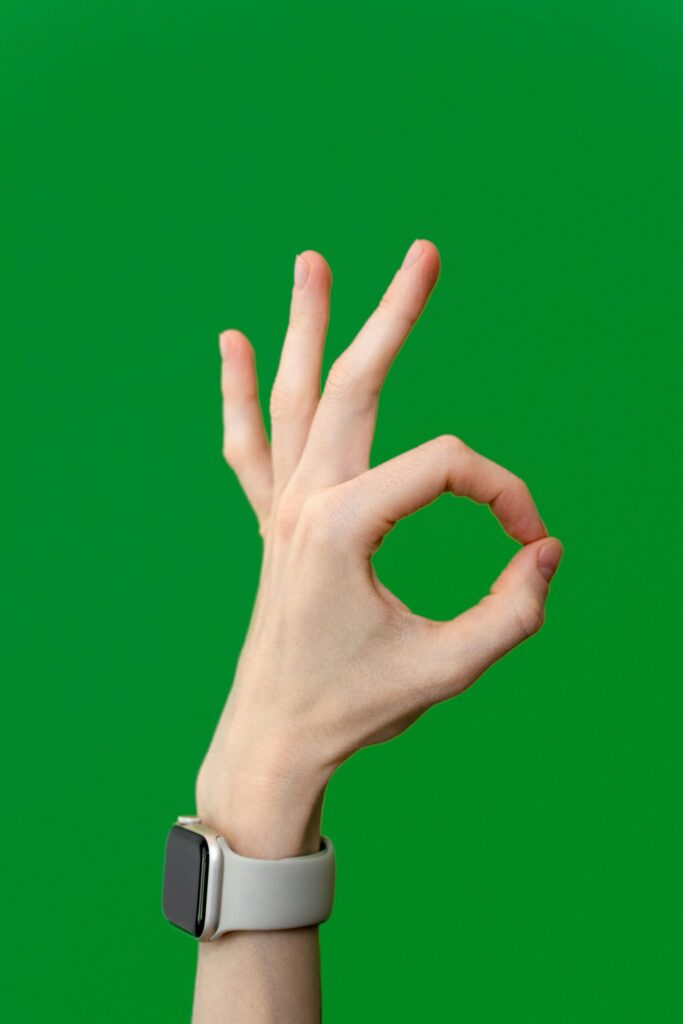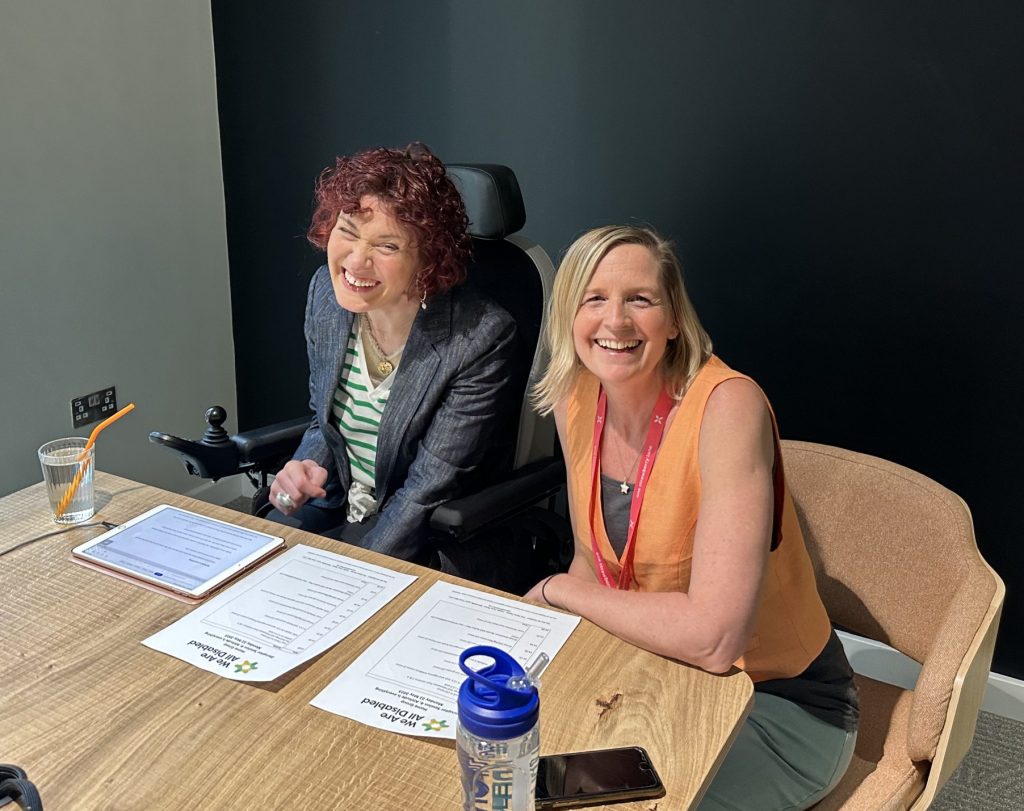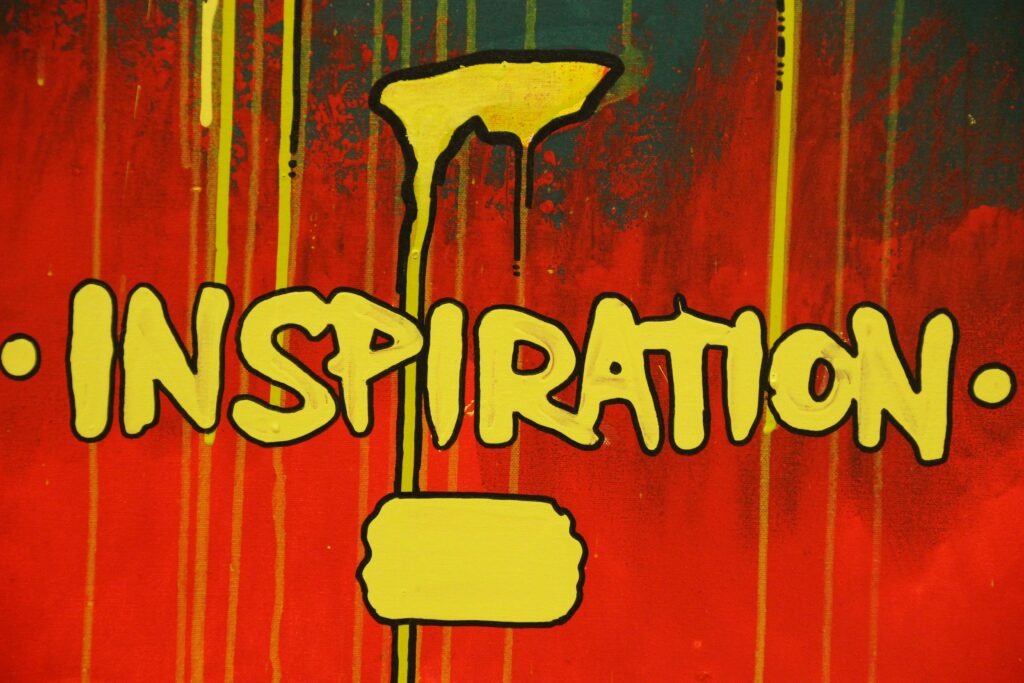Last month I took a significant step forward in my journey when We Are All Disabled was awarded CIC status as a business with social, charitable and community objectives. This is a major achievement and an exciting milestone for We Are All Disabled as a movement to explore, challenge and change perceptions of disability
For me it is so important to lead the We Are All Disabled movement on a professional but also a personal level because as a disabled person I am frequently marginalised from society. People’s perceptions of me are often at odds from my lived experience of disability, to the point where some people feel so uncomfortable that they avoid engaging with me altogether and instead turn to the person who I’m with. I am sure you can understand how this can make me feel inadequate and devalued
A few months ago I wrote about psych-emotional well-being of disabled people and since then I have reflected on the interactions that I have with people who don’t know me. I experience unintentional biases regularly and although previously I have said that I try to brush them off, I have realised that if I am on a mission to explore, challenge and change perceptions of disability I need to encourage others to speak up, be their authentic selves and embrace difference .
I am going to offer an insight into ‘direct psycho-emotional disablism’ and how it impacts me in my lived experiences as a disabled person. Direct psycho-emotional disablism fundamentally focuses on the relationship between disabled people with other people or with themselves. In this category, there are several ‘acts of invalidation’.
Reeve declared that some disabled people who have a visible impairment experience being stared at by others when they are away from home. This stare can turn into a hardened deliberate gaze as well as avoiding conversation with the disabled person (Hughes, 1999). Reeve stated that comments about being disabled and references to wheelchairs reveal more about the instigator’s vulnerabilities and fears rather than that of the disabled person (Reeve, 2012).
Negative connotations about disabled people emerge through the use of harmful language. This implies that disability is a disadvantage to the individual, therefore devaluing the disabled person of self-worth (Swain & French, 2000, 2008). Whilst this might not be deliberate, it is problematic and impacts on the direct psycho-emotional well-being of disabled people .
I want to walk you through a particular incident which made me feel embarrassed and devalued because of others’ lack of experience and confidence in interacting with disabled people.
A few years ago I was on holiday in the US and having dinner in my hotel. When the waiter came to take our order, it was evident that he was uncomfortable around me and my disability as he struggled to interact with me. He looked to my PA to take my order, even though I was talking to him directly and automatically gave the glass of wine I had ordered to my PA instead of to me.
At the end of the meal, I ordered a chamomile tea and when the waiter brought it to me, I could tell he was unsure where to put it. Instead of just asking me, he awkwardly tried to place it next to me and accidentally knocked it over. The entire cup of boiling chamomile tea gushed out over me, scalding my leg and causing me to cry out.
The shock and pain of the injury was bad enough, but perhaps even worse was that not one person came to help me or see if I was okay. I feel that people may have thought that I had spilled the drink over myself – perhaps they would have noticed already that I need help to eat and that I drink through a straw. The restaurant staff were suddenly nowhere to be seen and the other customers in the restaurant didn’t even look my way – presumably they assumed that I was having some sort of fit and were embarrassed.
It is of course impossible to say for certain, however I’m fairly sure that if I hadn’t been disabled I would have been treated entirely differently in this situation. This is only one example of some of challenges that I face interacting with others as a disabled person which can make me feel less important or valued than other people.
I did eventually complain and took things further but at the time of the accident I remember feeling really uncomfortable and that I just wanted to leave as soon as possible. It shows what a powerful impact these sorts of incidents can have in making me and other disabled people feel inadequate and disempowered.
In my doctoral research, I found that ‘Interaction’ refers to the level of communication between the ‘Self’ and the ‘Other’. My findings suggested that lack of interaction with a disabled person makes them feel less empowered and that they are more the object of pity. It’s imperative that we work collaboratively to turn this around and change this perception of disability.
We can do this if we adapt to viewing disability through the Affirmative model which asserts that disabled people have a unique way of being situated in society and that the lived experience of disability can be equally as positive as that of non-disabled people.
We have to come together locally, nationally and globally to embrace disabled people’s individual skills and first-hand experiences with a view to forming empathetic relationships and closing the binary divide. We Are All Disabled will do this by opening up conversations about disability, promoting understanding and embracing difference.
The first We Are All Disabled takes place October 7th where we will officially launch our CIC and We Are All Disabled as a movement. It would be great to see you there so look out for the Eventbrite page coming soon!..
Also if you have experienced psycho-emotional disablism and would be happy to share your story I’d love to hear from you. Add a comment here, drop me a line at Lucy@wearealldisabled.com or contact me via social media.
References:
Hughes, B. (1999) The Constitution of Impairment: Modernity and the Aesthetic of Oppression. Disability & Society [Online], 14 (2) March, pp. 155–172. Available from: <http://www.tandfonline.com/doi/abs/10.1080/09687599926244> [Accessed 11 December 2017].
Reeve, D. (2012) Psycho-Emotional Disablism: The Missing Link?,. InRoutledge handbook of disability studies (pp. 92-106). Available from: <http://eprints.lancs.ac.uk/69654/1/ReeveArticle2002.pdf> [Accessed 10 January 2018]
Swain, J. & French, S. (2000) Towards an Affirmation Model of Disability. Disability & Society [Online], 15 (4) June, pp. 569–582. Available from: <https://doi.org/10.1080/09687590050058189> [Accessed 7 May 2018].
Swain, J. & French, S. eds. (2008) Disability on Equal Terms. Los Angeles: SAGE.
Photo by Charles Deluvio on Unsplash









